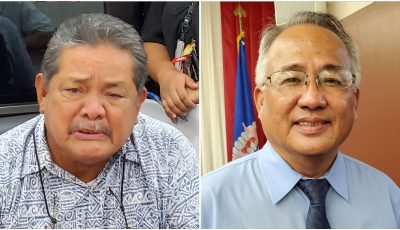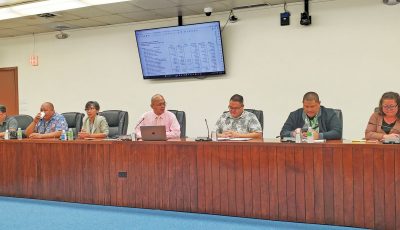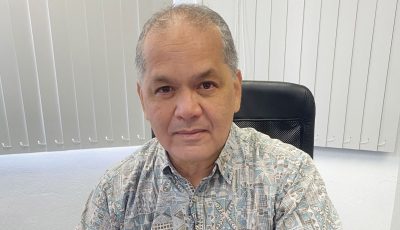Attao files bill to cap monthly utility charges for select officials at $1,000
Bill seeks to clarify provision of official residences for eligible officials
House of Representatives vice speaker Blas Jonathan T. Attao (R-Saipan) has introduced a bill that seeks to clarify the provision of official residences for eligible elected officials. The official residences and its associated utility billings were among the issues brought up before the House Judiciary and Governmental Operations Committee, which is investigating Gov. Ralph DLG Torres’ expenditures of public funds.
House Bill 22-88, which Attao introduced during last week’s House session, also seeks to amend a statute to implement a cap on the amount of utility charges allowed per month for the governor and lieutenant governor.
House Speaker Edmund S. Villagomez (Ind-Saipan) last week appointed Attao to chair the Special Investigating Committee on Impeachment that will evaluate whether to impeach Torres.
Attao is supporting Lt. Gov. Arnold I. Palacios’ intent to run as governor in the November 2022 gubernatorial election.
According to Attao’s legislation, 1 CMC Section 8222 is vague and needs to be amended to add proper safeguards. The bill will add provisions clarifying the use of private residences in the absence of functional government dwellings and implement a cap on allowable utility charges.
The statute currently states that the governor, lieutenant governor, Senate president, and the House speaker “are authorized to obtain government houses for their private and residential purposes for the duration of their term in such office.” But for decades now, such government houses have either been condemned or classified as damaged and not fit for human habitation.
As a result, Attao underscored the need to update existing law to govern how the provision of official residences shall be handled in the absence of suitable government dwellings.
Attao also stressed the importance of implementing a cap on the utility consumption amount for each of these residences.
House Bill 22-88 seeks to amend the statute to remove the Senate president and House speaker from being authorized to obtain government houses for their private and residential purposes for the duration of their term in such offices.
Under the bill, if government-owned houses are unavailable for this purpose, a privately-owned residence may be designated the official residence for each of these elected officials. In these cases, such officials are authorized to receive publicly-funded payment of utilities at such privately-owned residences up to a cap of $1,000 per month. Any utilities payment in excess of such cap shall be considered a personal expense and the responsibility of the elected officials.
Utilities may be paid at public expense only in residential structures, the bill states.
If government-owned houses are certified as unfit for habitation or otherwise unavailable, the Personnel Office may designate a privately-owned residence for temporary assignment as the official residence of each of these elected officials until such time as government houses are available for such purpose.
The enactment of this bill “shall not have the effect of terminating…any liability, civil or criminal, which shall already be in existence at the date of this Act becomes effective.”
The bill’s co-authors are Villagomez (Ind-Saipan), floor leader Ralph N. Yumul (R-Saipan), and Reps. Joel C. Camacho (Ind-Saipan), Angel A. Demapan (R-Saipan), John Paul A. Sablan (R-Saipan), Joseph A. Flores (Ind-Saipan), and Joseph Lee Pan T. Guerrero (R-Saipan).



























